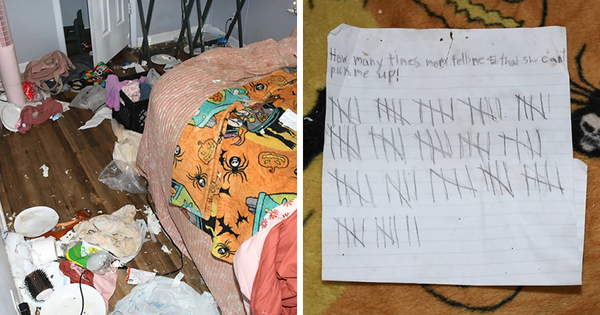
Tens of thousands of people have joined protests in western India in the past week demanding the return of a temple elephant who was rescued and relocated to a sanctuary run by a powerful industrialist’s family.
Nearly 30,000 people in Maharashtra marched on 3 August calling for the return of Mahadevi, a 36-year-old female elephant also known as Madhuri who was recently relocated from a shrine in Kolhapur to Vantara.
Vantara is a wildlife rehabilitation centre in neighbouring Gujarat state run by the Radhe Krishna Temple Elephant Welfare Trust. The trust is backed by Reliance, a business conglomerate owned by Mukesh Ambani, one of Asia’s richest people.
Vantara was conceived by the billionaire industrialist’s son Anant Ambani. The Ambani family have long enjoyed close relations with India’s prime minister Narendra Modi, who inaugurated the facility on 3 March this year.
As part of the protest this week, locals have launched a boycott of Reliance’s Jio telecom service. In just four days, The Hindu reported, over 150,000 mobile users across Kolhapur, Sangli and Satara ported their numbers to other networks.
“We plan to carry out similar protests in north Karnataka since it is a border region and several temples there also have elephants,” Raju Shetty, a former parliamentarian from Maharashtra, said.
The march for Mahadevi ended after a formal appeal for the elephant’s return was lodged with the local authorities.
Mahadevi had been kept at Swastishri Jinsen Bhattarak Pattacharya Mahaswamy Sanstha, a shrine for the Jain community at Nandani village in Kolhapur, for over three decades.
Yeh desh Ambani ke bete ke baap ka nahi hai.
— Kunal Kamra (@kunalkamra88) August 2, 2025
Return Madhuri/Mahadevi to Kolhapur… pic.twitter.com/kD5SjIoCER
In October 2023, after tracking the elephant’s condition for over a year, PETA filed a complaint with the High Powered Committee of the federal environment ministry, according to a statement by Vantara.
The complaint, which reportedly included veterinary reports and photographs, documented Mahadevi’s physical injuries and psychological trauma and alleged that she had been put to illegal commercial use by the shrine.
The committee launched an investigation and eventually ordered Mahadevi’s transfer to the rehabilitation facility, citing her continued neglect and poor welfare conditions at the shrine.
It noted reports documenting her use in religious processions, unlawful public events, and unsafe practices like lifting children with her trunk. It also stated that several expert inspections, including assessments by a panel appointed by the committee, had found the elephant was suffering from advanced foot rot, ulcerated wounds, overgrown toenails, and displayed clear signs of psychological distress.
The shrine contested the decision to relocate her, but to no avail.
The Supreme Court last month upheld the Bombay High Court’s decision to relocate Mahadevi for better care and rehabilitation. The court backed PETA India’s argument that “the sentiments of devotees cannot override the fundamental right of an animal to health and dignified care”.
Jains treat all living beings with equal love, respect, and compassion — always.
— Glory of Jainism (@gloryofjainism) August 3, 2025
Madhuri (Mahadevi) was never mistreated. Stop the false narrative.#BringBackMadhuri #JainCompassion #MoneyOverJustice pic.twitter.com/zbW3wILo42
Protest leaders, including Mr Shetty, accused PETA of acting in collusion with Anant Ambani to target temple elephants under the guise of animal welfare.
Mr Shetty alleged that the relocation of Mahadevi was part of a broader strategy by PETA to “seize” elephants from religious institutions and hand them over to corporate-backed facilities like Vantara.
“This is a tactic by PETA, acting as a slave to Ambani’s interests, to seize temple elephants,” he alleged. “We will file a formal complaint with PETA’s head office in the US, and seek cancellation of their licence in India.”
PETA India rejected accusations of collusion, pointing out that Mr Shetty himself previously supported Mahadevi’s relocation and veterinary care. “It’s disheartening to now see him opposing her rehabilitation when she’s finally living free of chains, receiving treatment for painful ailments caused by years of neglect, and finding companionship among other elephants, and retired after a hard life,” the group said in a statement to The Independent.
It emphasised that the elephant was suffering from irreversible physical and psychological trauma after decades of isolation and mistreatment at the shrine and that her transfer to Vantara was ordered by the High Powered Committee, not by PETA.
The Independent has contacted Vantara for comment.
On the day of Mahadevi’s relocation, residents of Kolhapur clashed with the Vantara staff who had come to collect her.
The Hindustan Times reported that when people from Vantara, PETA and the forest department arrived, they were pelted with stones by some of the protesting residents.
The clash resulted “in broken car windows, wounds and a PETA India staff member sustaining a serious rib injury”, PETA said.
After 33 years alone and in chains, Mahadevi (Madhuri) is finally receiving the care she deserves thanks to @petaindia’s action!
— PETA (@peta) August 2, 2025
Mahadevi was controlled with weapons and forced into chaotic ceremonies. Now, she’s starting a new life with other elephants at @Vantara_RF 🐘💙 pic.twitter.com/AYybbfdLOg
The unrest was brought under control with police intervention. Once the situation had calmed, the locals gave Mahadevi an emotional send-off, the newspaper noted.
The shrine wanted to retain the elephant “despite Mahadevi’s arthritis and other severe health problems from spending most of her life on concrete”, PETA claimed.
“Elephants are intelligent, emotional beings who require a life without chains and an elephant family for their mental wellbeing,” it said. “PETA India is grateful to the Supreme Court for recognising Mahadevi’s right to live the rest of her years free from pain, weapons, fear and isolation.”
PETA was also “immensely grateful to Vantara’s Radhe Krishna Temple Elephant Welfare Trust for giving her the opportunity to finally experience life as an elephant should”.
Mahadevi was apparently taken from her mother as a calf and spent years in isolation at the Jain shrine.
In 2017, she fatally attacked the shrine’s chief priest, repeatedly slamming him against a wall, an incident which animal rights groups linked to her psychological distress from prolonged captivity. PETA said she had been left “disturbed” by decades of “deteriorated health and psychological suffering”.
Huge Protest in Kolhapur for Mahadevi. We want no further delays. Madhuri Elephant was ours and should be in our hands.#Bringbackmadhuri #MahadeviElephant #MadhuriElephant pic.twitter.com/xZIfwh9stM
— Be Jain (@be_jain_india) August 3, 2025
A 2023 National Geographic article pointed out that even though elephants were worshipped as sacred beings in India, many temple elephants endured harsh treatment and neglect, a truth, it said, that animal welfare advocates were increasingly working to expose.
By some estimates, nearly one in three Asian elephants lives in captivity.
“Lord Ganesha is a Hindu god with an elephant face. Because of that reverence, elephants had always been considered holy. That’s the tragic paradox because on the one hand, elephants are revered and worshipped. And on the other hand, they’re enslaved,” Sangita Iyer, who made the documentary Gods in Shackles about elephants in captivity in 2016, told the outlet.
After Mahadevi’s relocation caused a public backlash, Vantara said it had neither initiated nor requested her transfer. The decision was made by the High Powered Committee based on the facility’s capacity and track record.
Watching this video, breaks my heart 💔
— The Lie Lamaa 🏹 (@BhaktBusters) August 2, 2025
Mahadevi (Madhuri), an Elephant from a Jain Math in Kolhapur, was sent to Ambani's Vantara after a court order citing health. People are upset & are protesting . . pic.twitter.com/Q78BMvBQOk
“It’s unfortunate that, despite full legal closure, misinformation is being spread to vilify Vantara and its supporters,” the facility said. “When courts have ruled, continuing to target a neutral organisation that merely followed orders undermines faith in the judiciary.”
Maharashtra’s chief minister, Devendra Fadnavis, said on Wednesday that his government would explore legal options to bring Mahadevi back.
“Considering the public sentiments, the state government will intervene in the legal process to bring back the Mahadevi elephant,” he said after chairing a meeting to discuss the matter. “The Jain shrine will submit a review petition in the Supreme Court and the government will help them by submitting an intervention application.”
Vantara reportedly told the chief minister they were willing to help set up a satellite rehabilitation centre for Mahadevi near the Jain shrine on land selected by the forest department.
The story of Madhuri (Mahadevi) the elephant is truly heartbreaking.
— PunsterX (@PunsterX) August 4, 2025
She was bought and kept in a Jain Math, used for religious processions, and to beg for alms!!
She was even transported illegally to Hyderabad on several occasions for Moharram processions.
Her condition… pic.twitter.com/FfsY13CGqX
Two days ago, Vantara had posted a video of Mahadevi on Instagram titled “A day in the life of Madhuri”. “Every elephant deserves a life led by instinct, not instruction,” it said. “That is the life Madhuri is finally discovering at Vantara.”
While PETA and the courts have defended her transfer on grounds of health and welfare, they have not convinced everyone.
Some animal rights groups have expressed concern over Vantara’s value as a genuine conservation initiative, pointing to a lack of transparency over its acquisitions, as well as its emphasis on rare species and grand infrastructure. Animal rights groups have also questioned the impact on existing public zoos due to the transfer of animals from states like Uttarakhand and Madhya Pradesh.
Due to misinformation about elephant Mahadevi (Madhuri) circulating on social media, PETA India shares the full story of how she went from a life in chains to being rescued.
— PETA India (@PetaIndia) August 1, 2025
Read the full blog here: https://t.co/EoMtXrPxvI pic.twitter.com/UFKm45TtA6
In March this year, several Indian media outlets removed reports highlighting concerns from a South African wildlife coalition, Wildlife Animal Protection Forum of South Africa, about the transfer of wild animals to Vantara. The group had urged the South African government to investigate the legality of animal exports from the country to the private Indian facility, citing possible violations of the Convention on International Trade in Endangered Species (CITES) treaty.
Vantara has rejected such criticisms as “entirely false and baseless”, and said its transfers of animals from South Africa were conducted in full compliance with the country’s federal and provincial rules. It said the concerns raised had been “thoroughly investigated and conclusively closed by CITES” and accused the South African forum of being “seemingly driven by vested interests”.







